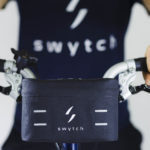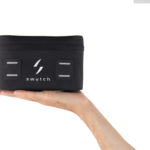I did a lap of the Isle of Wight yesterday... 85 miles on my BBSHD from a 17.5Ah 52v battery.... so I was running at very low power levels typically about 100-150w and coasting down hills.
Its a heavy old beast and I was putting some effort in on the hills. There's a lot of hills and they're equally interspersed by downhills....
Got me thinking has anyone ever experimented with regenerative braking? Are there any products available to do so?
It'd also be really cool if you could fast charge an e-bike from a public electric car charger!
Its a heavy old beast and I was putting some effort in on the hills. There's a lot of hills and they're equally interspersed by downhills....
Got me thinking has anyone ever experimented with regenerative braking? Are there any products available to do so?
It'd also be really cool if you could fast charge an e-bike from a public electric car charger!





